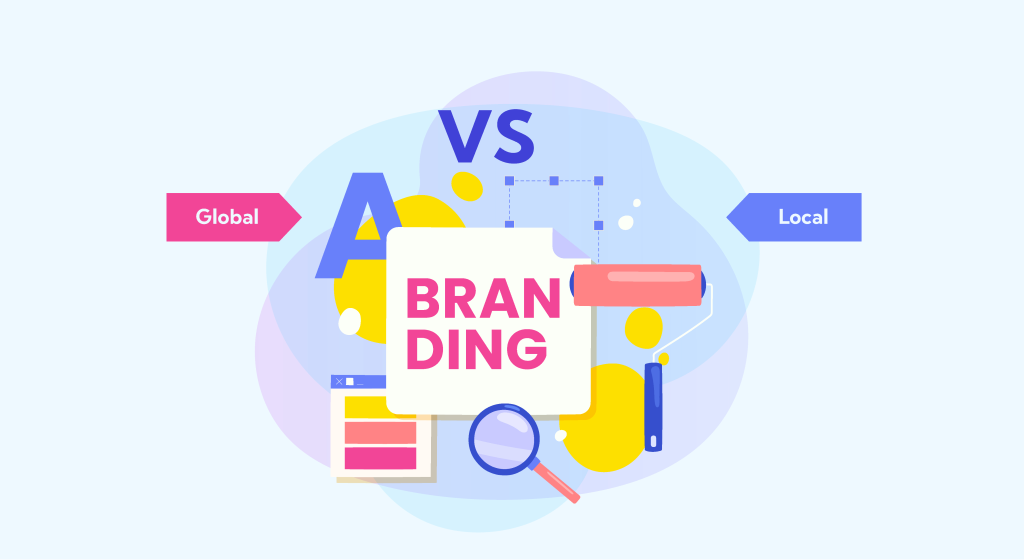
Brand Architecture Tools and Resources for Marketers
In moment's hyperactive- competitive business geography, establishing a strong and cohesive brand armature is essential for success. Brand armature refers to the way a company organizes and presents its brands andsub-brands to consumers. It plays a pivotal part in helping consumers understand the relationship between different products or services within a brand portfolio. For marketers, having the right tools and coffers to develop and manage brand armature is consummate. In this blog post, we'll explore the significance of brand armature and give a comprehensive list of tools and coffers to help marketers navigate this complex terrain.
The Significance of Brand Architecture
The brand strategy and overall performance of a firm may be significantly impacted by effective brand architecture. Here is why it's important:
Clarity: Consumers may better comprehend a company's brand hierarchy by using brand architecture. It reduces confusion by making it clear which goods and services are connected and which are separate.
Consistency: All brand components, including logos, colours, and message, are guaranteed to be consistent throughout the whole portfolio by a clearly established brand architecture. This regularity fosters recognition and confidence.
Efficiency: By making use of current brand value, marketers may simplify their efforts. It is simpler to introduce and advertise new goods or services under one brand when people are already familiar with it.
Flexibility: By repositioning existing brands or launching new ones, businesses may respond to shifting market conditions without hurting their total brand equity.
Let's examine the tools and resources available to marketers to develop and maintain successful brand strategies now that we are aware of the significance of brand architecture.
Brand Architecture Tools
1. Brand Strategy Workshops
Starting the brand architecture process by holding workshops on brand strategy is a great idea. Discussions about brand positioning, target audience, and competitive analysis are facilitated by these workshops, which frequently include important stakeholders. Virtual or physical workshops may be facilitated with the use of tools like Lucidspark or Miro, which encourage group brainstorming and idea exchange.
2. Brand Asset Management (BAM) Software
Marketers may organise and centralise all brand assets, including logos, photos, videos, and brand guidelines, using brand asset management tools like Adobe Experience Manager, Bynder, or Widen Collective. This guarantees that all employees within the company have access to the most recent brand materials and adhere to brand guidelines.
3. Mind Mapping Tools
Visually mapping out brand hierarchies and relationships may be done with mind mapping software like MindMeister or XMind. To illustrate the relationships and interactions between various brands and subbrands, marketers might draw structured diagrams.
4. Competitive Analysis Tools
It's important to comprehend the brand strategies of your rivals. Marketers may perform competitive analysis and see how other businesses in their field organise their portfolios by using tools like SEMrush, Ahrefs, or Brandwatch.
5. Customer Surveys and Feedback Platforms
Utilising survey software like SurveyMonkey or Google Forms may help you assess user impressions and preferences. Making judgements about your brand's architecture is improved by getting input from your target market.
Brand Architecture Resources
1. Books
Numerous publications offer in-depth analyses of brand strategy and architecture. David Aaker's "Building Strong Brands" and David Aaker and Erich Joachimsthaler's "Brand Portfolio Strategy" are two books that are highly suggested.
2. Online Courses
There are several online learning sites that provide courses on brand architecture and strategy. Courses given by subject matter experts are available on websites like Coursera, LinkedIn Learning, and Udemy, which may assist marketers improve their expertise in this field.
3. Industry Conferences and Webinars
A great method to remain current on the newest trends and best practises in brand architecture is to participate in industry conferences and webinars. Events like the Branding Conference and the Cannes Lions Festival provide beneficial networking possibilities.
4. Brand Consultancies
The best method to create a solid brand architecture occasionally is to seek the advice of a brand consultant. Businesses with expertise in brand strategy and architecture, such as Interbrand, Landor, and FutureBrand, can offer specialised solutions.
5. Online Branding Communities
Being active in online groups and forums devoted to branding and marketing may be a fantastic method to share thoughts and get suggestions from other experts. Discussions and knowledge-sharing possibilities may be found on LinkedIn groups and websites like Brandingmag.
Implementing Effective Brand Architecture
Marketers have to adopt the following methodical process to execute a successful brand architectural plan:
Audit Your Current Brand Portfolio: Start by assessing the performance of your current brand assets in the market.
Define Your Brand Strategy: Establish the positioning, target market, and distinctive value proposition of your brand. The architecture of your brand will be built on this.
Create a Visual Representation: To build an accurate and thorough picture of your brand hierarchy, use mind mapping software or visual assistance.
Ensure Consistency: Use brand asset management tools and brand standards to enforce uniformity across all touchpoints.
Monitor and Adapt: Keep an eye on market trends and consumer input all the time. To stay current and competitive, be ready to modify your brand architecture.
In conclusion, the exploration of brand architecture tools and resources for marketers through the Xamtac platform has provided valuable insights into the dynamic world of branding. The diverse array of tools and resources showcased here underscores the importance of a well-structured brand architecture in today's competitive marketplace.

Local vs. Global Branding in Elements of Brand Identity
In a linked, globalized society, the concept of branding has undergone significant transformation. Businesses of all sizes may now reach customers worldwide thanks to the power of the internet

Unlocking the Future of Online Brand Monitoring
Revolutionizing online brand monitoring with AI-powered real-time analytics and comprehensive insights for businesses to stay ahead in the digital landscape

Logo Design vs. Branding: What’s the Difference?
Logo design focuses on creating a visual representation of a company or product, while branding encompasses the overall strategy and messaging that shape the perception and identity of a brand.

The Importance of a Well-Designed Logo for Your Brand Identity
A well-designed logo is crucial for establishing a strong brand identity and making a memorable impression on customers